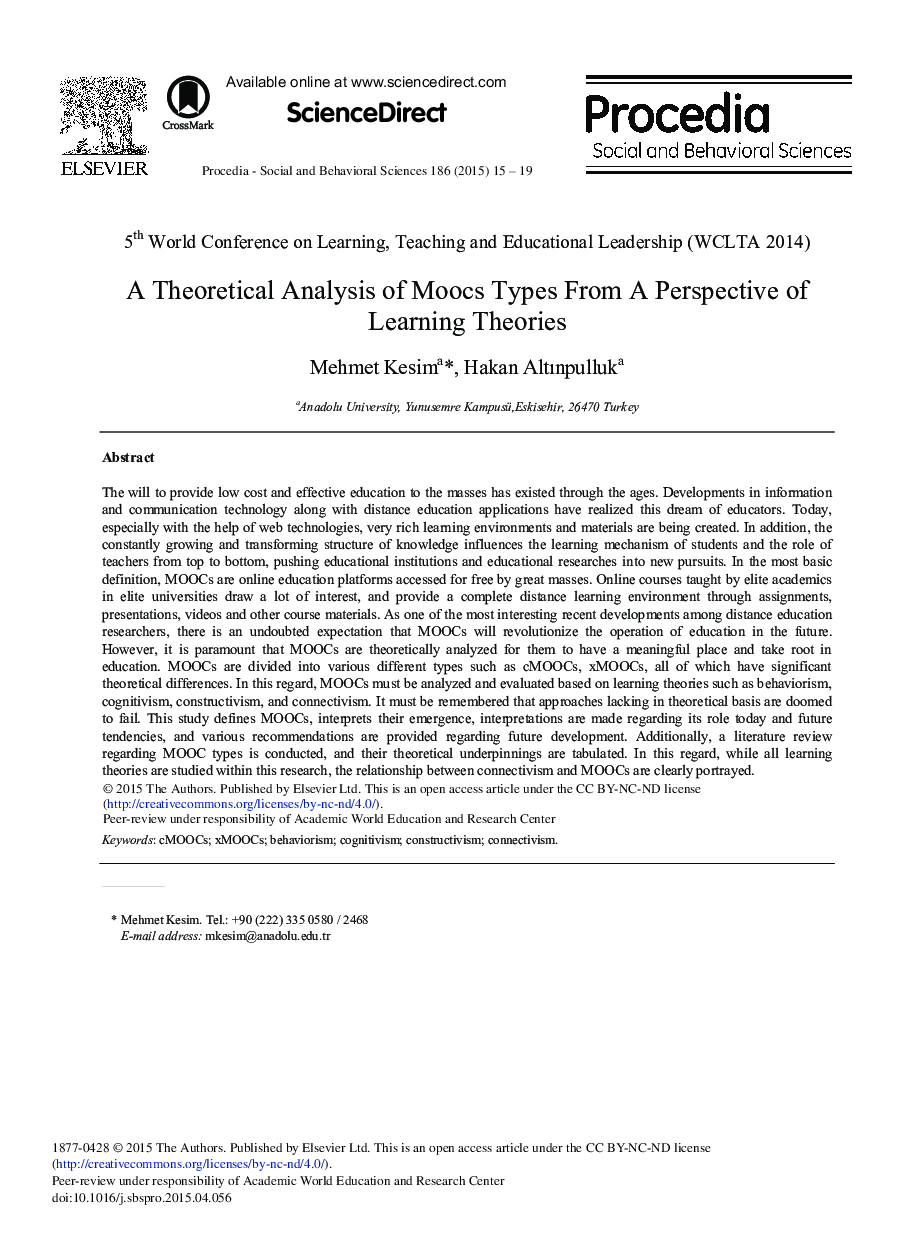| کد مقاله | کد نشریه | سال انتشار | مقاله انگلیسی | نسخه تمام متن |
|---|---|---|---|---|
| 1110419 | 1488373 | 2015 | 5 صفحه PDF | دانلود رایگان |

The will to provide low cost and effective education to the masses has existed through the ages. Developments in information and communication technology along with distance education applications have realized this dream of educators. Today, especially with the help of web technologies, very rich learning environments and materials are being created. In addition, the constantly growing and transforming structure of knowledge influences the learning mechanism of students and the role of teachers from top to bottom, pushing educational institutions and educational researches into new pursuits. In the most basic definition, MOOCs are online education platforms accessed for free by great masses. Online courses taught by elite academics in elite universities draw a lot of interest, and provide a complete distance learning environment through assignments, presentations, videos and other course materials. As one of the most interesting recent developments among distance education researchers, there is an undoubted expectation that MOOCs will revolutionize the operation of education in the future. However, it is paramount that MOOCs are theoretically analyzed for them to have a meaningful place and take root in education. MOOCs are divided into various different types such as cMOOCs, xMOOCs, all of which have significant theoretical differences. In this regard, MOOCs must be analyzed and evaluated based on learning theories such as behaviorism, cognitivism, constructivism, and connectivism. It must be remembered that approaches lacking in theoretical basis are doomed to fail. This study defines MOOCs, interprets their emergence, interpretations are made regarding its role today and future tendencies, and various recommendations are provided regarding future development. Additionally, a literature review regarding MOOC types is conducted, and their theoretical underpinnings are tabulated. In this regard, while all learning theories are studied within this research, the relationship between connectivism and MOOCs are clearly portrayed.
Journal: Procedia - Social and Behavioral Sciences - Volume 186, 13 May 2015, Pages 15-19